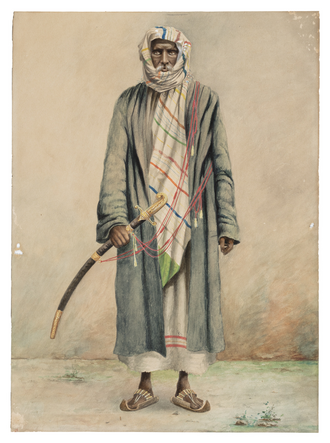Discover Your Roots
SIGN UPDiscover Your Roots
SIGN UPYusuf is a male name of Arabic origin, meaning "God Will Increase." It is the Arabic equivalent of the Hebrew name Yosef and the English name Joseph. The name signifies an increase in piety, power, and influence by God. Yusuf is widely used by individuals of Arab descent, including Middle Eastern Jews, Arab Christians, and Muslims. The name has various transliterations, including Yousef, Yousif, Youssef, Youssif, Yousuf, Yoosuf, and Yusef. Notable individuals with variations of this name include Yousaf Ali Khan, Yossef Karami, Youcef Abdi, Youssef Chahine, Yusef Komunyakaa, and Yusuf Islam. The name Yusuf holds significance across different cultures and has been embraced by people of various faiths and nationalities.

Sheikh Yusuf Estes, also known as Joseph Estes, is an influential American Islamic preacher and chaplain hailing from Texas. Notably, he underwent a significant religious conversion from Christianity to Islam in 1991. Estes has contributed significantly to the Islamic community, serving as a Muslim chaplain for the United States Bureau of Prisons in the 1990s and representing as a delegate at the United Nations World Peace Conference for Religious Leaders in September 2000.Renowned for his eloquence and wisdom, Estes has been a guest presenter and keynote speaker at various Islamic events, garnering widespread recognition for his contributions. In 2012, he was honored as the Islamic Personality of the Year at the Dubai International Holy Quran Award ceremony. Furthermore, he is the esteemed founder and president of Guide US TV, a free-to-air Internet and satellite TV channel dedicated to broadcasting programs about Islam.His impactful endeavors within the Islamic community have earned him a place among the top 500 most influential Muslims in 2010. However, in November 2017, Estes faced controversy when he was denied entry into Singapore due to expressing views that were deemed unacceptable by the Ministry of Home Affairs. Nonetheless, his contributions and advocacy for his faith continue to inspire and provoke meaningful conversations within the global community.

Yusuf Gatewood, born on September 12, 1982, is a well-known American actor recognized for his portrayal of Vincent Griffith in The Originals and Doug in the 2005 film The Interpreter. His impressive television credits include guest appearances on popular series such as Hack (2003), Law & Order: Criminal Intent (2003), CSI: Crime Scene Investigation (2006), and CSI: Miami (2007). Notably, in 2020, Gatewood took on the main cast role of Raymond Chestnut in season 2 of The Umbrella Academy. With a diverse and accomplished filmography, Gatewood continues to captivate audiences with his compelling performances. For more information about Yusuf Gatewood and his work, visit his IMDb page.

Yusuf Karamanli (1766–1838) was the longest-reigning Pasha of the Karamanli dynasty of Ottoman Tripolitania, present-day Libya. Born in Tripoli to the Turkish-origin Karamanli dynasty, he played a significant role in the Barbary Wars against the United States. After reclaiming Tripoli from the Ottoman Empire, he signed the Treaty of Tripoli in 1796, permitting passage of American ships through Tripolitanian waters. However, in 1801, he demanded a tribute from President Thomas Jefferson, leading to unofficial war. The conflict ended in 1805 with the signing of a treaty. Karamanli's rule was marred by the Al-Jawazi massacre in 1817, where he ordered the execution of thousands following a dispute. As the Napoleonic Wars forced an end to Barbary corsair activity, Tripoli's economy deteriorated. Karamanli's attempt to revive it through the trans-Saharan slave trade failed, leading to the decline of the dynasty and the eventual end of Tripoli's independence.

Yusuf Ali Kenadid (Somali: Yuusuf Cali Keenadiid; 1837 – 14 August 1911) was a Somali Sultan and the founder of the Sultanate of Hobyo. He hailed from the Bah Yaaqub branch of the Osman Mahamuud, Majeerteen Darod family. Kenadid independently amassed his fortune and evolved into a skilled military leader, commanding senior troops. He married a local woman to ensure commercial success and later signed a protectorate treaty with Italy to protect himself from Zanzibari hostility. This treaty played a crucial role in the Sultanate's expansion towards the interior, and Kenadid was able to convince other reluctant leaders to accept Italian protection. However, the relationship soured when Kenadid refused the Italians' proposal to allow British troops to disembark in his Sultanate. As a result, both Kenadid and his heir apparent, Ali Yusuf, were exiled. Kenadid's legacy lives on through his descendants, including Osman Yusuf Kenadid, who created the Osmanya writing script for the Somali language, and Yasin Osman Kenadid, who co-founded the Society for Somali Language and Literature.

All images displayed on this page are sourced from Wikipedia or Wikimedia Commons.We use these images under their respective Creative Commons or public domain licenses. Wherever applicable, author attributions and license information are provided. If you believe an image is used incorrectly or outside its license terms, please contact us so that we can review and correct the issue.